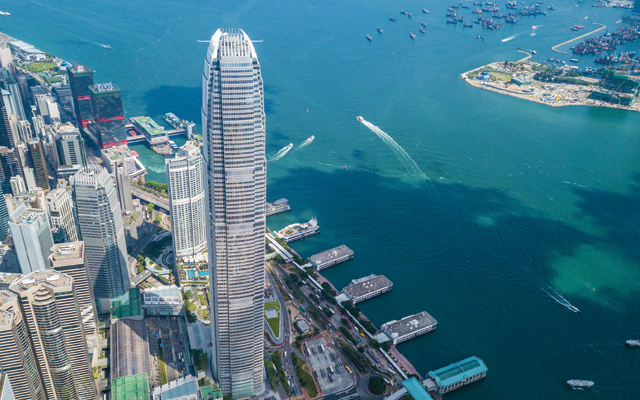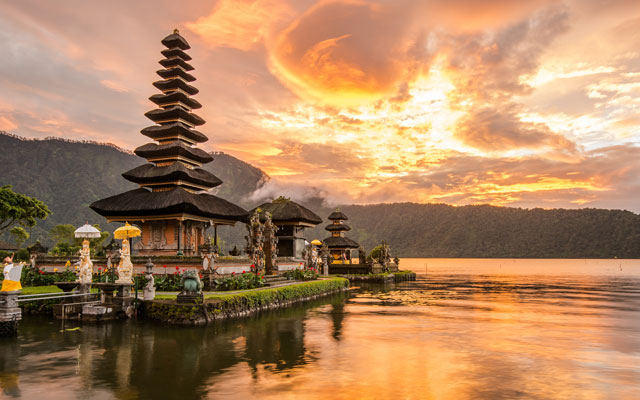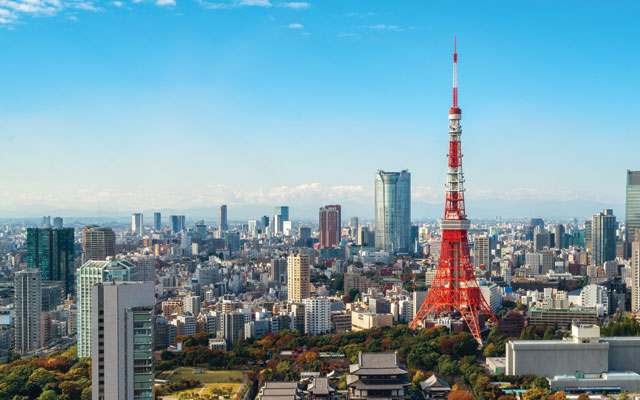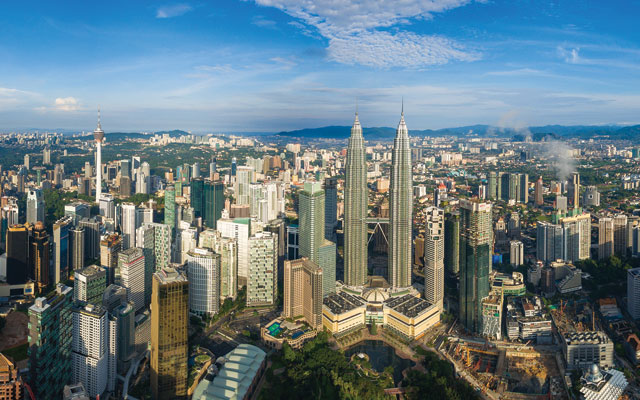Geopolitical tensions are not enough to put a damper on inbound business events performance in the region, while Asian bookers are demanding more personalisation and smarter use of their event budget.

Australia is expecting to see robust activity for business events in 2019, with most event segments seeing strong growth and Asia source markets regarded as a key contributor.
Penny Lion, executive general manager events at Tourism Australia, said: “(We have) overall growth of six per cent for business events arrivals and five per cent for business events expenditure in the year ending March 2018. In particular however, we are seeing strong growth out of China, with an 11 per cent increase in business events arrivals during this time, and 12 per cent growth in expenditure…so we expect a robust 2019 and beyond.”
Lion’s vote of confidence is echoed by Association of Australian Convention Bureaux’s (AACB) CEO Andrew Hiebl, who projects that the number of international delegates travelling to Australia to attend almost 400 business events in 2019 will break the quarter-million mark for the first time since AACB reporting, contributing to a total delegate spend of more than A$1 billion (US$722.9 million).
“Association meetings and conventions will continue to be Australia’s strongest performing international segments,” said Hiebl. “(But) international corporate meetings and incentives won dropped by 18 per cent (suggesting these may prove the weakest areas next year)”.
However, corporates are where convention centres like ICC Sydney are banking on for the strongest growth, with CEO Geoff Donaghy seeing incentives and product launches increasingly booking Australia.
“Our close proximity to Asia provides us with an enormous advantage and opportunity,” he said. – Adelaine Ng

Hong Kong is leveraging improved cross-border access via the new High Speed Rail and the Hong Kong-Zhuhai-Macao Bridge to grow business travel and events traffic.
Nicholas Chan, director of sales with Kerry Hotel, Hong Kong, foresees an increase in business arrivals in 2019, driven by global interest in the new international transport link to support international meetings.
Chan expects the US to be Hong Kong’s strongest geographical market for business travel and events, while IT will be the top performing industry sector.
Other industry sectors slated “to shine” in 2019 are medical and healthcare, he said.
At Hong Kong Convention and Exhibition Centre (HKCEC), exhibitions remain the venue’s key business segment, with most events specialising in luxury products and services. The HKCEC spokesperson added that niche exhibitions on diving & resorts and technology for elderly people are growing.
HKCEC found that clients were also paying more attention to environmental issues, and expects this trend to continue.
Wellness and sustainability concerns are increasingly common among delegates attending events at Grand Hyatt Hong Kong, with planners now eager to find new ways to appeal to their participants through these aspects.
When asked about major business concerns for the new year, industry players pointed to uncertainty in the global economy and the trade war between China and the US. – Prudence Lui

India’s growing reputation as a knowledge powerhouse is expected to encourage a rise in exhibitions and conferences held on her soil in the new year, while positive international business ties will drive inbound business travel.
Business verticals such as medical, finance, IT and engineering are predicted to be strong drivers of business travel and events demand.
Chander Mansharamani, managing director at Alpcord Network Travel & Conferences, added that the “stability of the Indian economy means that inbound MICE demand will grow 10 to 15 per cent in 2019”.
Swadesh Kumar, founder of Shikhar Group of Companies, identified the US, Europe and Japan as key source markets for inbound business events and corporate traffic, as “they have strong business ties with India”.
With the Indian tourism ministry stepping up destination marketing efforts in the past year, some industry players are also expecting corporate incentive interest to rise in 2019.
Meanwhile, Sanzeev Bhatia, vice president, The Metropolitan Hotel & Spa New Delhi, is betting on a rosy second half of the year.
He explained: “The Indian union elections are scheduled in the first half of 2019, so a lot of companies have planned their (events in India) for the later part of the year.” – Rohit Kaul

Indonesian business event players are predicting a slow 1H2019 due to the country’s general and presidential elections, as well as the Ramadhan Muslim fasting month following soon after.
The Jakarta Convention Center, for one, is feeling the effects acutely. While the venue’s books at year-end typically show strong advance bookings until the following mid-year, this time round it isn’t so.
Hosea Andreas Runkat, director of convention services with the venue, explained: “Unlike in 2018, the next January-February period is quiet for us. March will be busy, but April bookings are down 50 per cent year-on-year because of the elections.”
Arya Seta Wiriadipoera, managing director of Napindo Media Ashatama, noted that elections always made for uncertain political situations which could bring about travel advisories against Indonesia.
Despite that, Arya remains optimistic that the seven exhibitions Napindo had planned for 2019 would be successful. “The Indonesian market is (highly regarded) and businesses want to profit from it. As such, trade exhibitions here are less vulnerable to economic (and political) issues,” he added.
While Muhammad Reza Abdullah, president director of Royalindo Expoduta, is seeing weaker business in 2019 compared to 2018, he remains encouraged of good business ahead leading from Indonesia’s successful hosting of the Annual Meeting of the IMF-World Bank in Bali last October.
Adding to Indonesia’s inbound business events woes is a cocktail of rising costs and destination competition, said Ida Bagus Lolec Surakusuma, managing director of Pacific World Nusantara, who believes that these will hurt inbound incentives in 2019.
“Companies are now tightening budgets while being offered more destination choices. Some budget-conscious clients farther afield are choosing to conduct their incentive programmes closer to home (instead of here in Asia),” he explained.
To get around this, he said the Indonesian Ministry of Tourism should focus on developing stronger business event arrivals from nearby Asian source markets. – Tiara Maharani

On the back of a solid business events performance in 2018 and thanks to a raised profile due to the upcoming Rugby World Cup and Olympic Games in 2020, Japan’s outlook for business events in 2019 is very positive.
“Interest in corporate meetings and incentives in Japan is increasing because of the Rugby World Cup next year, particularly among European markets – most notably the UK – as well as Australia and New Zealand,” said Etsuko Kawasaki, executive director of the Japan Convention Bureau.
The Japan National Tourism Organization has recently opened offices in Malaysia, Vietnam, Thailand and India, which has also had a positive impact on business event visitors to Japan, Kawasaki said. The Indian market has in particular been focusing on Japan, she also added.
Lucky Morimoto, president of Tokyo-based Event Services, anticipates continued strong interest from buyers representing large multinational life insurance companies and direct sales firms with operations in Hong Kong, Singapore, Malaysia, Thailand and China.
The positivity surrounding the inbound business events sector is encouraging the New Otani Hotel to cast its eyes beyond the domestic market.
“We are particularly interested in attracting MICE visitors from Europe and North America as those travellers (tend to stay in) Japan for a longer period of time,” said Mika Ikegami, senior sales manager for the Tokyo property. – Julian Ryall

With the majority (80.7 per cent) of subvention applications coming from Asia-Pacific, the Macao Trade and Investment Promotion Institute (IPIM) concluded that global issues such as the China-US trade dispute or BREXIT have little impact on Macau’s inbound MICE performance.
Corporate meetings was the strongest performing segment in 2018, followed by association meetings.
An IPIM spokesman expects to see the same picture in 2019, but said the organisation will “constantly monitor the situation”. He added: “If the trade dispute turns long-term, it may affect who does business with who although it may not lead to major downturn in B2B events.”
In Macau’s favour is the inauguration of the Hong Kong-Zhuhai-Macao Bridge which is boosting B2B traffic within the Pearl River Delta region as well as “the desire for the cities (there) to work together and explore business opportunities”. “Accessibility to Macau from Hong Kong airport is now 24/7 with the link bridge in place. This enhances our capacity to stage large-scale events,” said the spokesman.
Stakeholders like Sands China is projecting a buoyant 2019 for meetings and events. Vice president of sales, Stephanie Tanpure, noted that the average size of events is growing.
“At Sands Resorts Macao, we are particularly optimistic about the anticipated growth in MICE over the next two years and we remain hopeful to increase our market share across key source markets including China, Taiwan, Japan, Korea, South-east Asia, the US and Australia. In 2019, Sands Resorts Macao will undertake an intensive global roadshow which will cover over 25 cities commencing with the US in March 2019,” she detailed.
To encourage continued growth, particularly in inbound incentive trips, the Macao Government Tourism Office is maintaining its support scheme for this segment of events as well as its presence at various relevant tradeshows worldwide to promote the destination. – Prudence Lui

Malaysia has a healthy forecast for this year, citing new attractions and confirmed venue bookings as reasons for jubilation.
Arokia Das Anthony, director, Luxury Tours Malaysia, said: “Desaru Coast in Johor is shaping up and this will be a new destination for us to promote in 2019. Our main markets, Indonesia and India, performed well in 2018 and we expect the growth to continue in 2019.”
Adam Kamal, general manager, Tour East Malaysia, is optimistic as the company has confirmed forward bookings for incentives from Australia and Russia for 1H2019. Tour East Malaysia has also ventured to US and South America in search for new business.
Over in Penang, a fast-rising destination for business events, Setia SPICE Convention Centre is enjoying full venue occupancy from Fridays to Sundays throughout 2019, and will be busier in the new year than it was in 2018.
Yeoh Kheng Ho, senior manager, said advance bookings came mostly (70 per cent) from local companies planning meetings, annual dinners and exhibitions.
Ashwin Gunasekeran, CEO, Penang Convention & Exhibition Bureau, summed up that 2019 will be a busy year for Penang, with many national and international conference bids won in 2016 and 2017 materialising in 2019, including the World Seafood Congress 2019 which will take place in September.
However, Alan Pryor, general manager of Kuala Lumpur Convention Centre, is cautiously optimistic. Describing 2019 as a “moderate international meetings year for the centre”, he explained that clients are taking a wait-and-see approach to their event planning against a backdrop of uncertainties in geo-politics and a new government in Malaysia. – S Puvaneswary

Inbound business events are expected to fare better in 2019 than the previous year, emboldened by agile business from China, devaluing local currency that makes travel in the Philippines much more affordable, and renewed importance being given to this oft-neglected tourism segment.
“Business travel has grown exponentially and demand for corporate events has equally increased. This growth has seen China as the single strongest feeder market,” said Agnes Pacis, vice president sales and marketing, SMX Convention Center.
Marco Polo Ortigas Hotel’s general manager Frank Reichenbach said that based on tourism figures in 2018, China and Taiwan are expected to bring in more corporate guests. Conventions will continue to grow, he added, due to the “continuous development of infrastructure and facilities” while others said corporate meetings are another growth sector.
Another booster is the continued weakening of the Philippine peso, which fell 53.3 pesos to the US greenback in June 2018 – the weakest in 12 years – as experts predict that it will reach the 55 peso mark in 2019.
Factoring in inflation, currency fluctuations and other global macro issues, Marisa Nallana, president of the Philippines Exhibits and Themeparks, said the industry should take heed of the growing trend for “cost savings, fewer delegates for meetings, shorter meetings and events, and transfer to smaller/less costly venues”.
Joel Pascual, president of PACEOS (Philippine Association of Convention/Exhibition Organizers and Suppliers), said 2019 augured well as the MICE roadmap over the next nine years is already in place and the new COO of Tourism Promotions Board, Marie Venus Tan, has adopted the “bid, bid, bid” policy for international events while the government has the “build, build, build” infrastructure policy. – Rosa Ocampo

While inbound business events performance is expected to hold strong for Singapore, industry players are keeping a cautious eye on the ripple effect of international relations.
Jeannie Lim, executive director, conventions, meetings and incentive travel, Singapore Exhibition & Convention Bureau, is keeping an eye on “ongoing global tariff war and potential geopolitical tensions that might affect consumer confidence and business travel sentiments”.
Pan Pacific Hotels Group’s chief, sales & marketing officer, Cinn Tan, reflected similar sentiments. She projected that the “mounting trade tensions between the US and China will pose the biggest risk to global economic growth in 2019”.
The resulting climate may affect suppliers who are reliant on traffic from Central and South America as well as around Asia-Pacific, said Kerry Healy, vice president of sales Asia Pacific, AccorHotels. These markets “consider economic and political safety as their main issue when selecting a meeting destination,” she explained.
Geopolitical tensions could also affect air connectivity, which is a “top factor influencing meeting location” for planners in North America and Europe, Healy added.
Still, business is proceeding as usual in Singapore, as “the global economic outlook for 2019 and Asia-Pacific travel growth seems favourable,” forecasted Lim.
Tan added: “There is a silver lining in the clouds as the longer-term outlook by GBTA is more positive, as business travel-related spending is forecast to increase by 7.1 per cent in 2018 over 2017 (which totalled US$1.3 trillion globally). 2019 will also see more bleisure travel across all regions worldwide, particularly for top destinations such as Singapore, Tokyo and Shanghai.”
Singapore looks forward to a strong pipeline of conventions and large meetings from technology, innovation and direct selling companies. Growth momentum in the exhibitions and conferences sector is also expected to continue, according to Lim, driven by emerging clusters, such as advanced manufacturing, fintech, smart logistics and lifestyle. – Pamela Chow

While MICE performance data for 2018 had yet to be compiled at press time, the Korea Tourism Organization (KTO) revealed that corporate meeting and incentive arrivals to the country as of November 2018 had risen 21 per cent year-on-year.
Baeho Kim, KTO’s director of MICE planning & management team, believes that the figure will rise further by the year’s end.
Cyril Constantino, Asia Pacific supplier management lead, CWT Meetings & Events, reports stronger interest in the country too.
“We’ve seen an increase in the number of clients enquiring about hosting their events in South Korea and we organised a few large events here in 2018,” he shared, adding that Seoul and Jeju were a hit while Pyeongchang might gain more adventurous corporate groups in the new year due to publicity surrounding the 2018 Winter Olympics.
Constantino projects a brighter future for the country in 2019, “helped by the easing of tensions with the North”.
Various factors have also led to more intense interest in South Korea, he opined.
“South Korean culture has gained tremendous popularity across the globe. This is a major draw not just for incentive trips, but also for corporate events that are becoming increasingly ‘festivalised’ and incorporating K-pop elements into their concepts. Coupled with new creative spaces and experiences, these factors will continue to drive demand for South Korea moving forward,” he said.
Kim, too, anticipates continued “positive growth” in incentive arrivals thanks to the recovery of the Chinese market and strong economic developments in South-east Asia. KTO will maintain its focus on growing the corporate meeting and incentive segments.
Escalating competition with Thailand, Singapore and Japan will see KTO intensifying its promotional activities. In 2018, KTO moved to incorporate Hallyu elements into business event programmes by way of sponsorship of K-pop concerts, souvenirs, and more.
Kim added: “We recently signed an MOU with global hotel chains to conduct partner marketing and create new demand.”
Source markets that will get KTO’s attention in 2019 are Vietnam, Thailand and Indonesia, as well as Russia and Western Europe farther afield. – Karen Yue

The Thailand Convention and Exhibition Bureau (TCEB) recorded 1,255,985 overseas MICE arrivals in 2018, which for Nichapa Yoswee, senior vice president – business, is a “remarkable increase” of 19.9 per cent. These travellers generated revenue of around 95.6 billion baht (US$2.9 billion) – an 8.1 per cent rise over 2017’s performance.
TCEB secured 14 conference bids, 10 mega meeting and incentive groups (each with 2,000 to 20,000 pax), and eight new tradeshows in 2018.
Clearly, the corporate incentive sector continues to be Thailand’s strongest performer, growing by 35.9 per cent in 2018, with China being the prime source market.
Nichapa attributed the robust corporate incentive performance to Thailand’s introduction of fast-entry online visa system for travellers from 20 countries, including China, as well as a slew of new tourism products. In late-2018, Bangkok debuted the ultra-glamorous shopping complex ICONSIAM along the Chao Phraya River, and King Power Mahanakhon tower which houses Thailand’s highest observation deck at 314m above ground.
In Pattaya, Nongnooch International Convention and Exhibition Center was launched in 2017 and showed off its capability in 2018 by hosting a 10,000-pax Chinese incentive group, and the Miss Universe 2018 national costume competition.
Further boosting Thailand’s appeal for business events is TCEB’s Thailand: REDEFINE Your Business Events campaign, launched in 3Q2018 to strengthen collaboration with global event strategists to make their events in Thailand exceptional, noted Nichapa.
Also turning in a good performance report is IMPACT Exhibition Management, the company behind Bangkok’s massive IMPACT Muang Thong Thani convention and exhibition venue. Loy Joon How, IMPACT general manager, said the venue hosted over 100 international business and entertainment events in 2018, including the widely-covered Miss Universe 2018 finals.
Loy is optimistic about 2019’s performance, encouraged by Thailand’s relative affordability compared to other destinations, easy access, availability of first-class venues and strong government support.
Several international trade exhibitions and incentive groups have been confirmed for the venue in 2019, including the 35th ASEAN Summit. For the new year, TCEB is expecting a five per cent increase in overseas MICE arrivals and a similar five per cent increase in revenue. – Karen Yue

Minister of Culture, Sports and Tourism, Nguyen Ngoc Thien, said developing the country’s business events industry is a main priority for 2019 as investments into improved infrastructure and new products start to pay off. The ministry will focus on further developing business events capability mainly in Ho Chi Minh City, Hanoi, Danang and Nha Trang.
The incentive and conference sectors are expected to be the strongest performing in 2019, with meetings and exhibitions now booked directly through hotels.
Sandor Leinwand recte Rein, general manager of EXO Travel Vietnam, said incentive travel makes up about 70 per cent of the agency’s business events bookings, with the remainder being group meetings.
Linh Le, ASIA DMC group director, added: “MICE is no longer limited to meetings and conferences. Several corporates are now requesting DMCs plan meetings in locations where guests can extend to enjoy a well-earned holiday with their spouse or family.”
While regional markets continue to dominate, Le said there is potential for growth from India, Australia, Turkey, Russia and China. Brexit is expected to impact business from the UK, while the Spanish market is projected to be sluggish due to increased competition from Europe and Africa.
Sheraton Danang Resort general manager Frank Bochmann noted a rise in regional demand, such as from Thailand, Singapore and Hong Kong. He said: “People are now looking for somewhere new and Vietnam is an attractive alternative. They are tired of Phuket and Koh Samui.” – Marissa Carruthers





















